
Rodney Gilfry is a leading American operatic baritone. After launching his career at Frankfurt Opera in 1987, Gilfry quickly established a reputation for stylish singing and acting. A renowned Mozart specialist, he has given acclaimed performances as Don Giovanni, Count Almaviva, Guglielmo, and Papageno, and is also known for his work in roles from the standard baritone repertoire (Pelléas, Valent...
Explore all movies appearances

When Australian composer Brett Dean’s Hamlet had its world premiere at the Glyndebourne Festival in 2017, The Guardian declared, “New opera doesn’t often get to sound this good … Shakespeare offers a gauntlet to composers that shouldn’t always be picked up, but Dean’s Hamlet rises to the challenge.” On June 4, this riveting contemporary masterpiece appears live in cinemas, with Neil Armfield, who directed the work’s premiere, bringing his acclaimed staging to the Met stage. Many of the original cast members have followed, including tenor Allan Clayton in the title role. Nicholas Carter makes his Met debut conducting a remarkable ensemble, which also features soprano Brenda Rae as Ophelia, mezzo-soprano Sarah Connolly as Gertrude, baritone Rod Gilfry as Claudius, and legendary bass John Tomlinson as the ghost of Hamlet’s father. This live cinema transmission is part of the Met’s award-winning Live in HD series, bringing opera to movie theaters across the globe
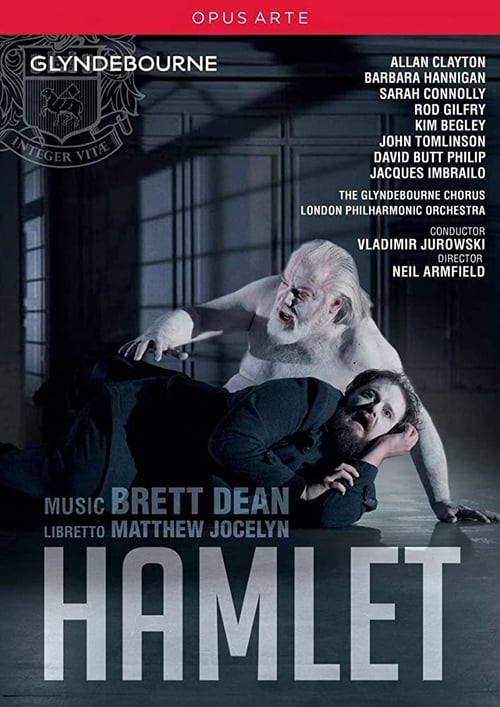
Brett Dean's multi-award-winning opera received its world premiere at Glyndebourne Festival 2017. The world premiere recording of Brett Deans new opera based on Shakespeares best-known tragedy: To be, or not to be. This is Hamlets dilemma, and the essence of Shakespeares most famous and arguably greatest work, given new life in operatic form in this original Glyndebourne commission. Thoughts of murder and revenge drive Hamlet when he learns that it was his uncle Claudius who killed his father, the King of Denmark, then seized his fathers crown and wife. But Hamlets vengeance vies with the question: is suicide a morally valid deed in an unbearably painful world?

After the acclaimed Met premiere of Thomas Adès's "The Tempest" in 2012, the composer returned with another masterpiece, this time inspired by filmmaker Luis Buñuel's seminal surrealist classic "El Ángel Exterminador", during the 2017–18 season. As the opera opens, a group of elegant socialites gather for a lavish dinner party, but when it is time to leave for the night, no one is able to escape. Soon, their behavior becomes increasingly erratic and savage. The large ensemble cast tackles both the vocal and dramatic demands of Adès's opera with one riveting performance after another. Tom Cairns, who also penned the work's libretto, directs an engrossing and inventive production, using a towering wooden archway to trap the characters onstage. And Adès himself takes the podium to conduct the frenzied score, which features a host of unconventional instruments, including the eerie electronic ondes Martenot.

The 2016 Aix-en-Provence Festival presented Mozart’s Così fan tutte in a modern, provocative production directed by Christophe Honoré. The staging reimagined the opera’s exploration of fidelity and deception against the backdrop of colonial-era Africa, addressing themes of power and exploitation. Honoré’s bold interpretation divided audiences, with some praising its daring approach and others finding it controversial. Conducted by Louis Langrée, the performance featured an exceptional cast, including Sandrine Piau, Lenneke Ruiten, and Kate Lindsey, whose vocal finesse and dramatic commitment brought vitality to Mozart’s intricate score. The inventive production blended historical commentary with the opera’s timeless emotional and comedic core, marking a memorable contribution to the festival’s legacy.
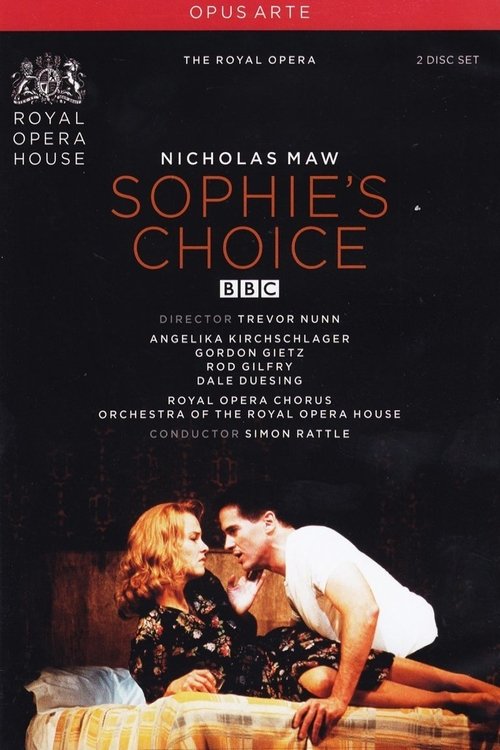
In 2002, Nicholas Maw's opera Sophie's Choice, based on the novel by William Styron, was given its premiere at the Royal Opera House. The subject had struck Maw when he had first watched the film several years previously, and he immediately felt it would be ‘the most extraordinary basis for an opera’. Commissioned by the Royal Opera House and BBC Radio 3, Maw embarked on an adaptation of Styron's book, which took six years to complete.
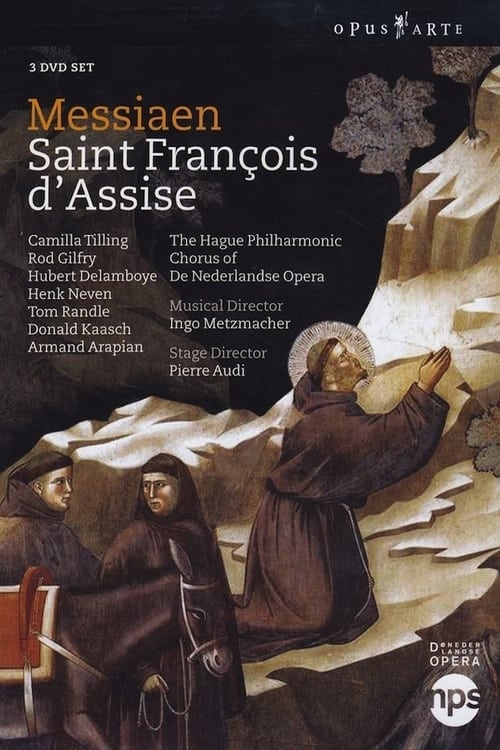
Messiaen's breathtakingly intense opera on the life of St Francis of Assisi stars Rod Gilfry as the charismatic visionary, beguiled by the glory of creation, yet fearful of both its imperfections and its transience. Pierre Audi's thoroughly engaging production for The Netherlands Opera brings out the naive imagery, the grandeur, and above all the vast tenderness of the resplendent score, revealed as a grandiose ritual with the meaning and purpose of life as its central theme. But the real drama of the work takes place in the orchestra. Elevated to stupendous heights by the sublimely inspired Ingo Metzmacher, The Hague Philharmonic and the Chorus of De Nederlandse Opera combine forces with a brilliant cast to produce the finest possible musical pilgrimage.
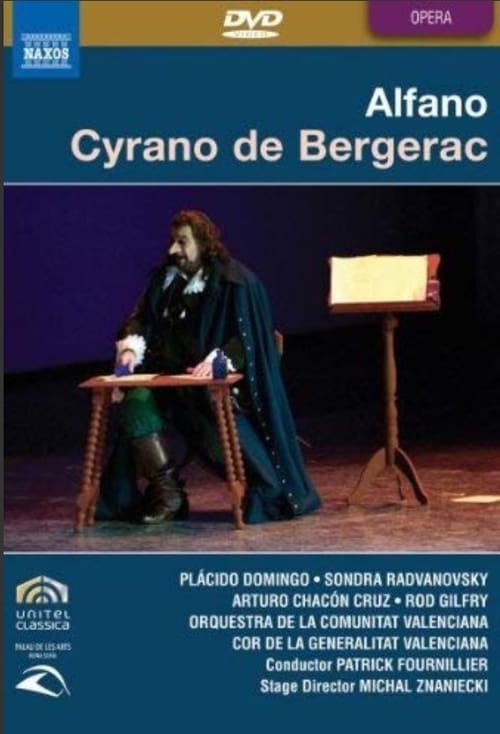
While best known today for having composed the ending to Puccini's unfinished Turandot, Franco Alfano wrote some dozen operas, including Cyrano de Bergerac (1936) with a libretto by Henri Cain based on Edmond Rostand's drama of the same name. It is a moving tale of romantic misunderstanding, swashbuckling bravado and heartbreaking loyalty, in which the eloquent Cyrano feels unable to express his love for Roxane because of his famously protuberant nose except on behalf of his handsome but inarticulate friend, Christian.
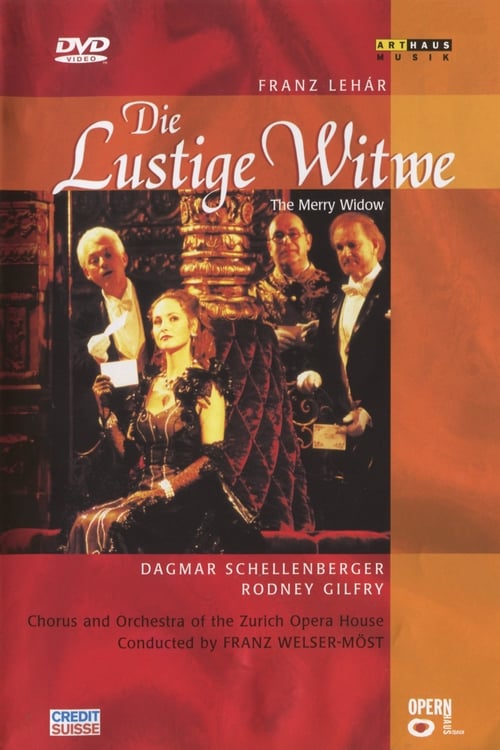
Zurich Opera House production of Franz Léhar's operetta, with Dagmar Schellenberger, Rodney Gilfry, and Ute Gfrerer in lead roles. Baron Zeta is desperate that the fabulously wealthy widow Hanna Glavari marry a Pontevedrian man so that her fortune remains in the country. He attempts to match her and his handsome attaché, Danilo. It turns out that Danilo and Hanna had had a love affair in years past. Nevertheless, Danilo now refuses to love her because he doesn't want to appear like he is only interested in her money...
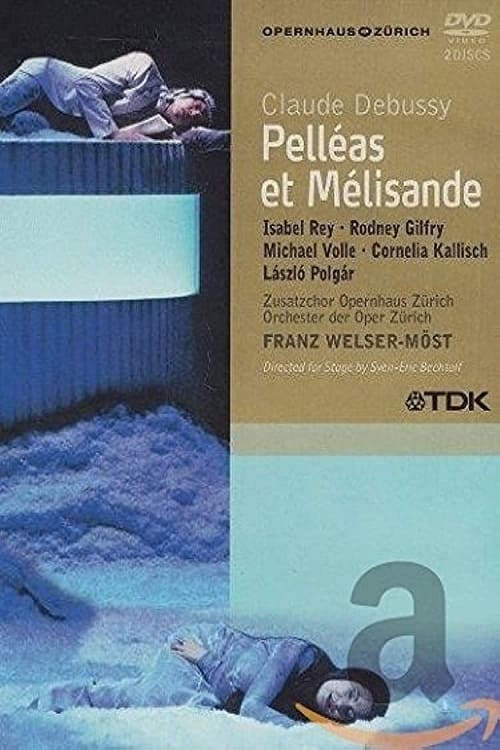
Claude Debussy's fairy tale-based opera Pelléas et Mélisande is by now well known; at once a tale of doomed love and a meditation on the cycle of creation and destruction (adapted from Maurice Maeterlinck's 1893 symbolist play), it originally premiered in 1902 to mixed critical reception, but has since become a staple of the operatic repertory and one of the most popular works from Debussy's canon. This particular production emerged from the Opernhaus Zürich in 2004. It stars Rodney Gilfry as Pelléas, Isabel Rey as Mélisande and Michael Volle as Golaud. Franz Welser-Möst conducts the Zurich Opera Orchestra; Sven-Eric Bectholf directs for the stage.
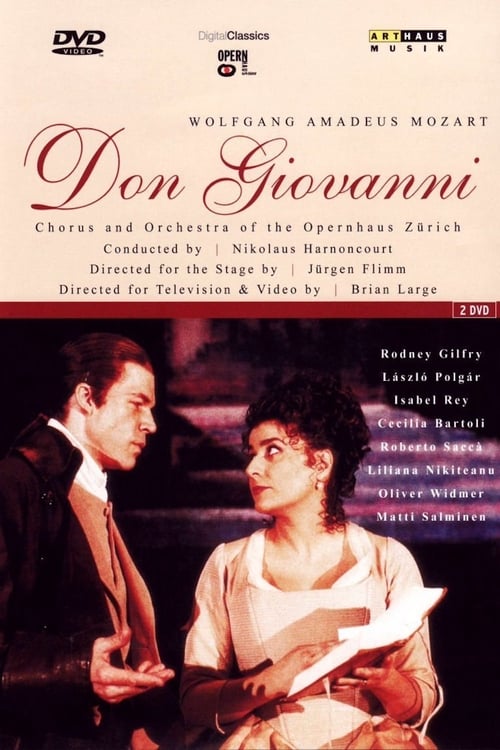
Live 2001 production from the Zurich Opera House of the classic Mozart/Da Ponte opera, with Nikolaus Harnoncourt conducting and directed for television and video by Brian Large.
Subscribe for exclusive insights on movies, TV shows, and games! Get top picks, fascinating facts, in-depth analysis, and more delivered straight to your inbox.